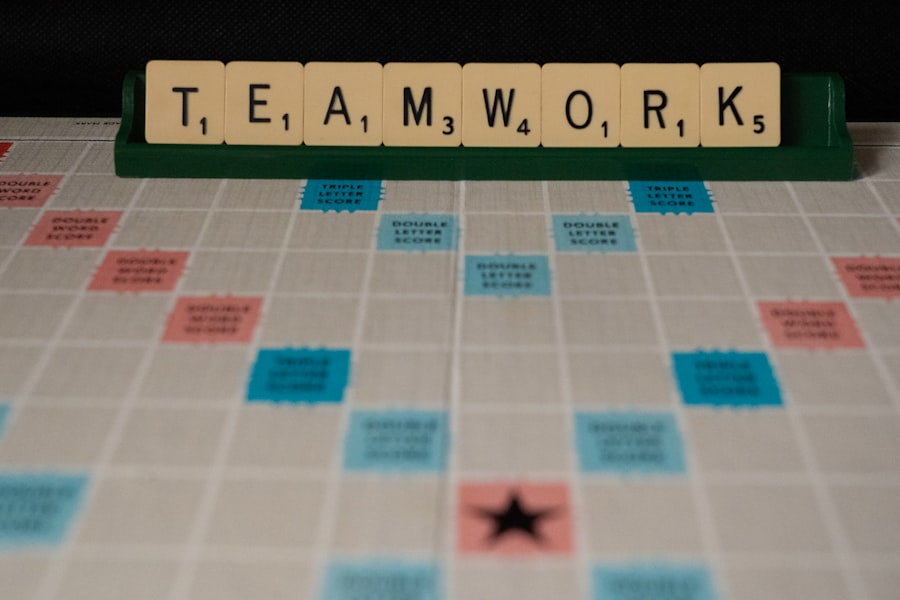
Following directions is a fundamental skill that permeates various aspects of life, from academic settings to professional environments. The ability to adhere to instructions not only reflects an individual’s capacity to comprehend and execute tasks but also demonstrates respect for the processes established by others. In educational contexts, students who follow directions are more likely to achieve desired outcomes, as they engage with the material in a structured manner.
For instance, a student who meticulously follows a lab experiment protocol is more likely to yield accurate results than one who improvises or disregards the steps outlined. This adherence fosters a sense of discipline and accountability, essential traits for success in any field. In the workplace, following directions can significantly impact productivity and team dynamics.
When employees understand and execute their roles as outlined by supervisors or project managers, it leads to smoother operations and minimizes the risk of errors. For example, in a manufacturing setting, workers who follow safety protocols and operational guidelines contribute to a safer and more efficient work environment. Conversely, failure to follow directions can result in costly mistakes, accidents, or even legal ramifications.
Key Takeaways
- Following directions is crucial for success in any task or job
- A strong work ethic is essential for achieving goals and excelling in the workplace
- Improving attention to detail can lead to higher quality work and better outcomes
- Overcoming procrastination and distractions is key to staying focused and productive
- Effective communication with superiors is important for building trust and achieving success in the workplace
Developing a Strong Work Ethic
A strong work ethic is characterized by dedication, responsibility, and a commitment to quality in one’s work. It is an essential attribute that employers seek in potential hires, as it often correlates with higher levels of productivity and job satisfaction. Developing a robust work ethic begins with self-discipline; individuals must cultivate habits that prioritize their responsibilities and goals.
This might involve setting specific work hours, creating to-do lists, or establishing a dedicated workspace that minimizes distractions. By consistently adhering to these practices, individuals can reinforce their commitment to their tasks and enhance their overall performance. Moreover, a strong work ethic is often reflected in one’s attitude towards challenges and setbacks.
Individuals who possess this quality tend to view obstacles as opportunities for growth rather than insurmountable barriers.
This resilience not only contributes to personal development but also inspires colleagues to adopt a similar mindset.
In essence, fostering a strong work ethic is about cultivating habits and attitudes that promote perseverance and excellence in all endeavors.
Tips for Improving Attention to Detail

Attention to detail is a critical skill that can significantly influence the quality of one’s work. It involves the ability to notice and address the finer points of tasks, ensuring accuracy and thoroughness. One effective strategy for enhancing attention to detail is to break tasks into smaller, manageable components.
By focusing on individual elements rather than overwhelming oneself with the entirety of a project, individuals can concentrate on executing each part with precision. For example, when writing a report, one might first outline the main sections before delving into the specifics of each segment. This method not only clarifies the structure but also allows for a more focused approach to each detail.
Another practical approach is to implement systematic review processes. After completing a task, taking the time to review and revise can uncover errors or areas for improvement that may have been overlooked initially. This could involve reading through written work multiple times or utilizing checklists to ensure all components are addressed.
Additionally, seeking feedback from peers can provide valuable insights into aspects that may require more attention. By fostering an environment where detail-oriented practices are prioritized, individuals can enhance their overall effectiveness and produce higher-quality work.
Overcoming Procrastination and Distractions
| Metrics | Results |
|---|---|
| Number of tasks completed | 25 |
| Time spent on productive activities | 20 hours |
| Number of distractions encountered | 10 |
| Percentage increase in focus | 30% |
Procrastination is a common challenge that many individuals face, often stemming from feelings of overwhelm or lack of motivation. To combat this tendency, it is essential to identify the underlying causes of procrastination and develop strategies to address them. One effective method is the Pomodoro Technique, which involves working in focused intervals—typically 25 minutes—followed by short breaks.
This approach not only helps maintain concentration but also makes daunting tasks feel more manageable by breaking them into smaller segments. In addition to time management techniques, creating an environment conducive to focus is crucial in overcoming distractions. This may involve decluttering one’s workspace, turning off notifications on electronic devices, or setting specific times for checking emails and messages.
For instance, an individual might designate certain hours of the day as “distraction-free” periods where they commit to uninterrupted work on critical tasks. By establishing boundaries and prioritizing focus, individuals can significantly reduce procrastination and enhance their productivity.
Communicating Effectively with Superiors
Effective communication with superiors is vital for fostering positive working relationships and ensuring clarity in expectations. One key aspect of this communication is active listening; it involves fully engaging with what is being said rather than merely waiting for one’s turn to speak. By demonstrating attentiveness during discussions, employees can better understand their supervisors’ perspectives and expectations.
For example, during a performance review, an employee who actively listens may glean valuable feedback that can inform their future work strategies. Additionally, clarity in communication is paramount when interacting with superiors. When presenting ideas or updates on projects, it is essential to be concise and articulate.
Utilizing visual aids such as charts or slides can enhance understanding and retention of information during presentations. Furthermore, asking open-ended questions can encourage dialogue and demonstrate a willingness to engage with feedback constructively. By prioritizing effective communication strategies, individuals can build rapport with their superiors and contribute positively to their teams.
Seeking Clarification and Asking for Help

In any professional setting, seeking clarification when faced with uncertainty is crucial for ensuring tasks are completed accurately and efficiently. Many individuals hesitate to ask questions due to fear of appearing uninformed; however, this reluctance can lead to misunderstandings and mistakes down the line. Cultivating a mindset that values inquiry fosters an environment where individuals feel empowered to seek assistance when needed.
For instance, if an employee is unsure about the specifics of a project deadline or deliverable requirements, reaching out for clarification can prevent potential issues later on. Moreover, asking for help should not be viewed as a sign of weakness but rather as an opportunity for collaboration and learning. In team settings, leveraging the expertise of colleagues can lead to more innovative solutions and improved outcomes.
For example, if an employee encounters challenges with a particular software tool, consulting a more experienced team member can provide insights that enhance their proficiency. By embracing the practice of seeking clarification and assistance, individuals can navigate complexities more effectively and contribute meaningfully to their teams.
Taking Responsibility for Mistakes
Taking responsibility for mistakes is an essential aspect of personal and professional growth. Acknowledging errors demonstrates integrity and accountability—qualities that are highly valued in any workplace environment. When individuals own up to their mistakes rather than deflecting blame or making excuses, they create an atmosphere of trust among colleagues and superiors alike.
For instance, if an employee miscalculates data in a report, admitting the error promptly allows for corrective measures to be taken before it impacts decision-making processes. Furthermore, embracing mistakes as learning opportunities fosters resilience and encourages continuous improvement. After acknowledging an error, reflecting on what led to it can provide valuable insights that inform future actions.
For example, if an employee realizes that poor time management contributed to missed deadlines, they can implement strategies such as prioritizing tasks or utilizing scheduling tools moving forward. By cultivating a culture where mistakes are viewed as stepping stones rather than setbacks, individuals can enhance their problem-solving skills and contribute positively to their teams.
Setting Goals and Tracking Progress
Setting clear goals is fundamental for personal development and professional success. Goals provide direction and motivation, serving as benchmarks against which progress can be measured. When establishing goals, it is beneficial to employ the SMART criteria—ensuring they are Specific, Measurable, Achievable, Relevant, and Time-bound.
For instance, instead of setting a vague goal like “improve my skills,” an individual might specify “complete two online courses in project management by the end of the quarter.” This clarity not only enhances focus but also facilitates tracking progress over time. Tracking progress towards goals is equally important in maintaining motivation and accountability. Regularly reviewing achievements allows individuals to celebrate milestones while also identifying areas that may require additional effort or adjustment.
Utilizing tools such as journals or digital apps can aid in monitoring progress effectively. For example, an employee might keep a weekly log of completed tasks related to their goals, providing tangible evidence of their efforts over time. By integrating goal-setting and progress tracking into their routines, individuals can cultivate a proactive approach towards personal growth and professional development.
If you’re interested in enhancing your work ethic and ability to follow directions, you might also find value in exploring the importance of communication in the workplace. Effective communication is a cornerstone of a strong work ethic, as it enables clear understanding of tasks and expectations. For more insights on how to improve your communication skills, which complement your ability to follow directions, check out this related article on Soft Skills in Communication. This resource provides useful tips and strategies to enhance your interpersonal interactions and overall workplace performance.
FAQs
What is work ethic?
Work ethic refers to the set of values and principles that guide an individual’s behavior in the workplace. It includes qualities such as reliability, punctuality, accountability, and a strong commitment to completing tasks and meeting goals.
Why is following direction important in the workplace?
Following direction is important in the workplace because it ensures that tasks are completed efficiently and accurately. It also demonstrates respect for authority and a willingness to work as part of a team.
What are the benefits of having a strong work ethic and following direction?
Having a strong work ethic and following direction can lead to increased productivity, improved teamwork, and a positive reputation in the workplace. It can also lead to opportunities for advancement and career growth.
How can individuals improve their ability to follow direction in the workplace?
Individuals can improve their ability to follow direction in the workplace by actively listening to instructions, asking for clarification when needed, and seeking feedback on their performance. They can also demonstrate a willingness to learn and adapt to new tasks and procedures.





